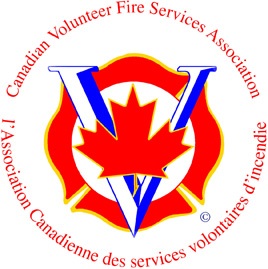by Dale Wagner.png)

Having been involved with the fire service for nearly 40 years, and currently a training officer for a volunteer fire department, I have seen many obstacles for fire departments in regards to training. As we all know, there is so much to train for because there is so much that fire departments do. Gone are the days that all we responded to were grass fires and the odd structure fire. Our responsibilities are so numerous that we require nearly a lifetime of training in order to fulfill them all. The training that sometimes gets left behind is the continuing education. For example, there does not seem to be time to go back to a module that was taken last year.
Many rural volunteer fire departments only meet twice a month and dedicate one meeting to training. It would take years at this rate to train to be a certified firefighter, and there is no allowance for continuing education, which is necessary. The other problem is that not everyone is able to attend every training class. So now how do these firefighters catch up to the rest of the class? One possible solution is to keep in touch with neighbouring fire departments and make arrangements to share in training. For example, if you have a firefighter who needs ropes and knots, you can send him down the road to another fire department that may be doing that training.
Another problem is that most courses require 8 to 10 hours in order to complete both the theory and the practical. Most times an instructor uses up 2 training evenings to complete a module. Therefore, you will have firefighters who complete the theory but miss the practical evaluation. The choices are to either take special time for individual firefighters to complete their practical or send them to another fire department if you can find one that is doing that particular module.
In Saskatchewan, CND, we are lucky to have 2 weekend training conferences per year where you can send new firefighters to get the basic modules. In this way you can get junior firefighters to take Orientation, Personal Protective Equipment, and Fire Behavior in one weekend, allowing you not to have to instruct these in-house. The fire training conferences also offer the specialized courses that you may not have the resources to instruct at home.
Sending your firefighters to the training conferences for these specialized courses frees you up to instruct the modules from the Essentials of Firefighting. The downside to sending firefighters to the training conferences is the cost. The courses are cheap as the instructors volunteer their time, but lodging for the weekend and travel expenses can add up if your department has a tight budget.
Sending firefighters to these training conferences is extremely valuable for many reasons. They meet firefighters from all across the province and have the chance to interact and see that issues they have are the same all over. We find that when firefighters come home after weekend training they are encouraged, energized and refreshed. They come home with new innovative ideas and a new spirit. Having them train from a different instructor is always good as well.
I am sure that training obstacles are the same across Canada, and we need to find ways to get the training that our volunteer firefighters require in as many innovative ways as possible.
Dale is the Provincial Director for Saskatchewan to the CVFSA
www.cvfsa.ca
Or, for their Facebook page, go here








